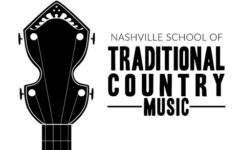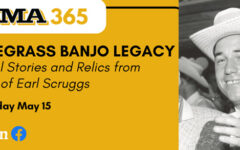
Back in June, we wrote about The Bluegrass Trust Fund and the assistance they provided to Ashby Frank following the Nashville floods of 2010. His home had half a foot of water standing in the first floor as the Cumberland River rose, requiring substantial repair including a new HVAC system and ductwork.
The point of the piece was that the Trust Fund exists to help anyone in the bluegrass family who finds themselves in need, regardless of age, IBMA membership, or the nature of their difficulty. Today we’ll talk about another prominent grasser who wants to share his story about the Fund, both to encourage anyone in our industry who needs help to swallow their pride and ask for it, and to explain to potential donors just how valuable the Fund can be to someone like him.
Creating a Fund like this was a major principle behind the founding of the International Bluegrass Music Association in 1985. Since the launch of the organization, it has been operated by an independent board to distribute cash awards as the need arose and their abilities allowed in the bluegrass world. It is primarily funded by the Wide Open Bluegrass Festival, held each year in conjunction with the annual IBMA World Of Bluegrass, held this year in Raleigh, NC on September 29-30. Artists perform for a reduced fee to allow IBMA to donate roughly half of the proceeds to the Bluegrass Trust Fund.
Phil Leadbetter’s support from the Fund in 2011 was for the more typical reason we expect from something like this. The popular resonator guitarist from Grasstowne, J.D. Crowe & The New South, and Wildfire got the most dreaded news one can get from his doctor. He had developed Hodgkins lymphoma, a potentially deadly cancer of the lymphatic system and white blood cells. And like many working musicians, he did not have health insurance at the time.
Though it was a long and treacherous six years of treatment, this April Phil finally received the word that the most recent scan had found no trace of cancer. But along the way, he had received intensive therapy on three occasions, including a stem cell transplant, all requiring hospitalization and regular return visits to Nashville from his home in Knoxville.
He described the interactions with IBMA over his situation…
“When I first got sick, J.D. Crowe called me to ask if my insurance would cover everything, and I told him that I had just switched insurance so it wasn’t going to cover right away. J.D. told me about the Trust Fund, and that I needed to call [then Executive Director] Dan Hays and put in an application.
About three hours after I talked to Dan, he called back and said that my request had been approved. I had a check the next day, and I was able to get my treatment started even earlier than I had expected. Without insurance, they wouldn’t even start until I had some money to put down.
I still have over a million dollars in medical bills. The charge was $28,000 twice a month for chemo. I pay what I can, but it will take a while, probably the rest of my life.”
Additional good fortune smiled on Phil when the cancer returned a second time after successful chemotherapy. Doctors determined that a stem cell transplant was his best hope of recovery, which is a very costly procedure. The treatment itself isn’t necessarily so expensive ($10,000 per occasion), but a long hospital stay is also required. In the procedure, healthy stem cells are harvested from your body, after which you undergo severe chemo and/or radiation therapy which very nearly kills off your body’s immune system, with the hope that the transplantation of the harvested cells will kick it back into gear.
It worked for Phil, but when the treatment loomed, paying for it wasn’t an easy option. He explained how he managed to qualify for free treatment.
“An anonymous wealthy individual in Knoxville donated to the Cancer Center to pay for 10 stem cell transplants. My doctor told me that we could get one of those, but I told him to make sure that there weren’t any kids or other people who really needed it more than me.
It would have cost $200,000 but was covered by the guy who owns Pilot Oil. I was able to trade off some music for some things I needed from doctors in Knoxville, but Pilot paid the bulk of it.”
Throughout his six year cancer ordeal, filled with uncertainty, discomfort, and hope, Phil says that the IBMA was there to help out whenever he needed it. Don’t forget that not only did he have substantial medical bills, he was also unable to work during long periods of treatment and recovery.
He urges anyone in bluegrass who has a need to ask for the help that is available.
“You can hide behind your pride, but I want people to know about this and what the Trust Fund can do to help.
The IBMA does a lot of good, and this Trust Fund has all of our backs. It could affect any of us and our families one of these days. That’s all of our safety nets right there.
And I’m really glad it’s there. None of us can say, I’m never gonna need something like that. Things can change in your life really quickly.”
Now that he is healthy again, and performing regularly as a member of Flashback, Leadbetter says that he is eager to give back as best he can to the organization that helped him when he was down.
“I’m glad to share my story about this, and I’ve told Paul Schiminger at IBMA that I’m there to do anything I can for the Trust Fund. We may try to organize some local and regional shows to help generate money and awareness about this.
I’m hoping that the good stuff’s ahead for me, now that I have a clear scan on my cancer.”
We’re hoping the same, Phil.
More information on the Bluegrass Trust Fund can be found online, where tax-deductible contributions of any size can be accepted. Those who are able to contribute – or who purchase tickets for Wide Open Bluegrass – can find comfort in knowing how much good this Fund can do in the lives of artists whose music you enjoy so much.







